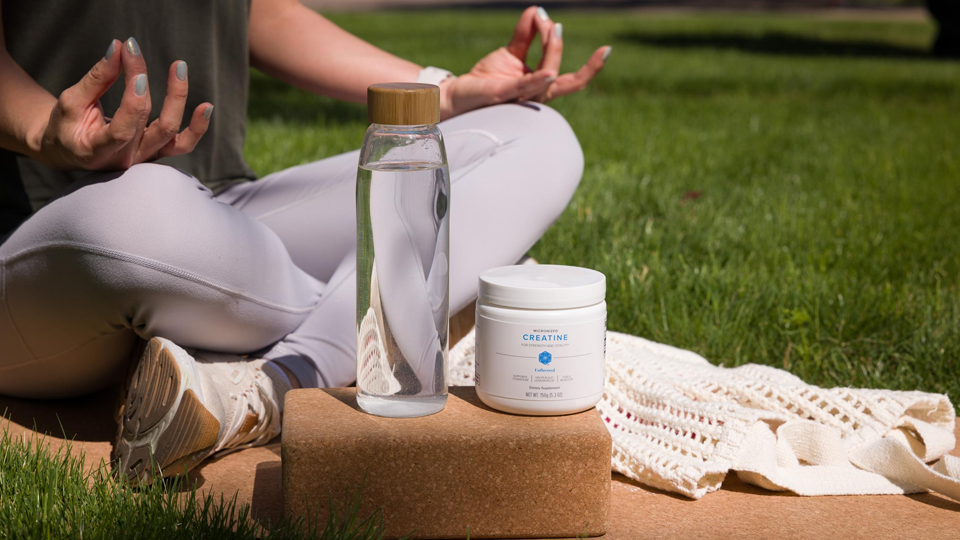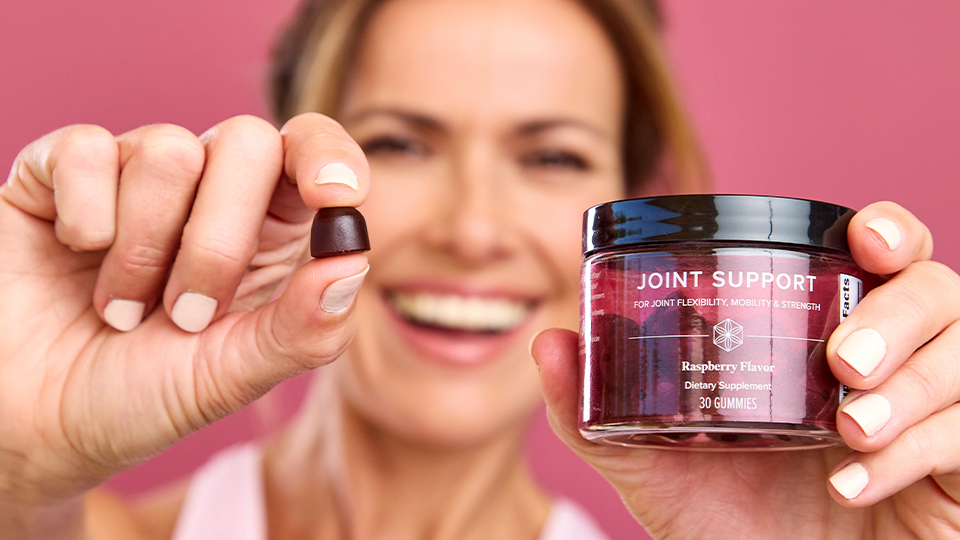Let’s be honest: How much time do you spend resting and recovering after a hard workout or competition?
Probably not much time—recovery tends to be the furthest thing from athletes’ minds when they’re focused on performance. Nevertheless, rest and recovery should be top priority for all athletes.
Getting enough rest is too often regarded as a waste by athletes who are keen on not missing any days of training or are obsessed with reaching their goals. However, having to miss out on an entire season of activity due to not resting properly is worse.
Up to 30 percent of athletic injuries are related to overtraining. Women, who tend to train long and use repeated movements, account for the majority of those injuries (1, 2).
Planning ahead for rest and recovery is by far the most critical factor in avoiding overtraining. A few other tips include: refueling with foods that best support muscle recovery, getting enough rest and sleep, and performing an active recovery routine will also help speed up the process.
Tip #1: Refuel To Rebuild
Right after a hard workout, it’s prime time to refuel muscles. Like empty fuel tanks, muscles are depleted of glycogen (carbohydrate stores) after working out. The faster those tanks are filled, the quicker those muscles will be ready to move again (3).
In addition, feeding the body with the right kind of protein will aid in building stronger muscles. Protein sources that contain high concentrations of branched-chain amino acids (BCAAs) in amounts between 20 to 40 grams are generally best (4).
BCAAs act like a signaling mechanism, or a key in the ignition of a vehicle, that turns on muscle synthesis. For this reason some athletes supplement with extra BCAAs after every workout as a way to generate maximum muscle protein synthesis and, ultimately, maximum muscle gains.
Whey protein naturally has the highest concentration of BCAAs in comparison to other proteins. It also is absorbed into the bloodstream much faster than other protein sources (5, 6). The first few hours after a workout is when muscles are more receptive to the uptake of both protein and carbohydrates (5, 6).
When a quality whey protein supplement like Isagenix IsaPro® is taken together with a carbohydrate source such as a banana or other fruit, studies suggest that whey-based protein can boost or speed up recovery (5, 6).
Tip #2 Perform and Feed Active Recovery
Remember RICE (rest, ice, compress, and elevate)? Not long ago it was the standard advice for athletes post-training to help injured muscles recover.
While the cold might numb the pain a little, more recent evidence has found it can slow recovery and even interfere with muscle adaptation and growth (7, 8). Athletes are better off avoiding any kind of icing or immobilization of those muscles, except as a way to manage pain or soreness.
Instead, try using easy, gentle movements to improve muscle recovery. Easy weight lifting, light cycling, swimming, or walking are all wonderful options. What’s most important is to get those muscles moving to boost blood flow for greater delivery of nutrients and stimulates more muscle protein synthesis (8). The improved circulation speeds up the healing process and helps speed muscle recover and growth.
While you’re at it, make sure those moving muscles receive all the nutrients they need for fast recovery. That should include plenty of quality proteins, essential vitamins and minerals, and essential fats.
Additionally, athlete nutritional requirements will often exceed those of non-athletes during times of exercise recovery. So it’s best to stay away from empty-calorie foods—doughnuts and chips—and focus on those that are nutrient dense—lean meats, whole grains, fruits, and vegetables.
You can more easily ensure you’re providing your body with a quality nutritional foundation with Isagenix IsaLean® Shakes or IsaLean® Bars. They’re high in whey protein, fiber, vitamins, and minerals.
Finally, supplementing with Ageless Essentials™ Daily Pack helps fill any nutritional gaps. It also supplies additional bioactives like coenzyme Q10 and quercetin that are shown in studies to be supportive to the immune system and help reduce recovery times in athletes (9-11).
Tip #3: Sleep Enough and Sleep Well
The next priority on an athlete’s list is both getting enough sleep and getting quality sleep. That sounds like a simple task, but it’s not always that easy. Athletes commonly have sleep problems, often due to hectic schedules, travel, and jet lag, as well as aches and pains due to training (12, 13).
Getting quality sleep is something that any athlete can prepare for in advance through routine stretching, massaging sore areas, or icing (only if necessary).
Athletes also might use a melatonin supplement when they are having trouble managing sleep. In studies on older adults with a history of sleep problems, researchers have found that melatonin helps reduce the time it takes to fall asleep, increases the quality of sleep, and helps to lengthen the duration of sleep (14). Isagenix Sleep Support and Renewal™ provides about five milligrams of melatonin per every three sprays.
Sleeping better also means preparing the right environment for quality sleep—a dark, quiet room where the athlete’s not likely to be disturbed. It also means avoiding use of devices like laptops or smartphones with screens that could suppress the brain’s natural production of melatonin, which governs the body’s circadian rhythms (14).
Faster Recovery = More Training = Better Performance
For athletes, the value of faster recovery is clear: it means they can get back to practice or training more quickly, and that means a greater chance at performing better during competition. The more consistent athletes are at planning ahead for recovery, the better.
References
- Koutedakis Y, Sharp NC. Seasonal variations of injury and overtraining in elite athletes. Clin J Sport Med. 1998 Jan;8(1):18-21.
- Kreher JB, Schwartz JB. Overtraining syndrome: A practical guide. Sports Health. 2012 Mar; 4(2): 128–138. doi: 10.1177/1941738111434406
- Ivy JL. Glycogen resynthesis after exercise: effect of carbohydrate intake. Int J Sports Med. 1998;19 Suppl 2: S142-145.
- Moore DR, Robinson MJ, Fry JL, et al. Ingested protein dose response of muscle and albumin protein synthesis after resistance exercise in young men. Am J Clin Nutr. 2009;89(1):161-168.
- Yang Y, Breen L, Burd NA, et al. Resistance exercise enhances myofibrillar protein synthesis with graded intakes of whey protein in older men. Br J Nutr. 2012;108(10):1780-1788.
- Stark M, Lukaszuk J, Prawitz A, Salacinski A. Protein timing and its effects on muscular hypertrophy and strength in individuals engaged in weight training. J Int Soc Sports Nutr. 2012; 9: 54. Published online 2012 Dec 14. doi: 10.1186/1550-2783-9-54
- Bleakley C, McDonough S, MacAuley D. The Use of Ice in the Treatment of Acute Soft-Tissue Injury: A Systematic Review of Randomized Controlled Trials. Am J Sports Med January 2004 vol. 32 no. 1 251-261.
- Roberts LA, Raastad T, Markworth JF, Figueiredo VC, Egner IM, Shield A, Cameron-Smith D, Coombes JS, Peake JM. Post-exercise cold water immersion attenuates acute anabolic signalling and long-term adaptations in muscle to strength training. J Physiol. 2015 Jul 14. doi: 10.1113/JP270570. [Epub ahead of print]
- Dietmar A, Schmidt ME, Siebrecht SC. Ubiquinol supplementation enhances peak power production in trained athletes: a double-blind, placebo controlled study. J Int Soc Sports Nutr. doi: 10.1186/1550-2783-10-24 (http://www.jissn.com/content/10/1/24)
- Nieman DC, Henson DA, Maxwell KR et al. Effects of quercetin and EGCG on mitochondrial biogenesis and immunity. Med Sci Sports Exerc 2009;41:1467-75.
- Nieman DC, Henson DA, Gross SJ et al. Quercetin reduces illness but not immune perturbations after intensive exercise. Medicine and Science in Sports and Exercise 2007;39:1561.
- Haison SL. Sleep in elite athletes and nutritional interventions to enhance sleep. Sports Med. 2014 May;44 Suppl 1:S13-23. doi: 10.1007/s40279-014-0147-0.
- Lee A, Galvez JC. Jet lag in athletes. Sports Health 2012 May;4(3):211-6.
- Lemoine et al. Prolonged-release melatonin improves sleep quality and morning alertness in insomnia patients aged 55 and older and has no withdrawal effects. European Sleep Research Study, 2001;16:372-380.





